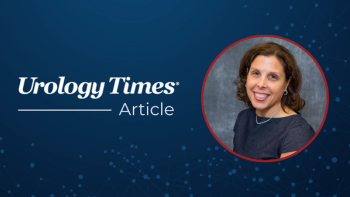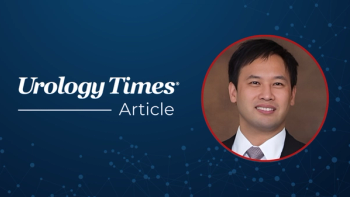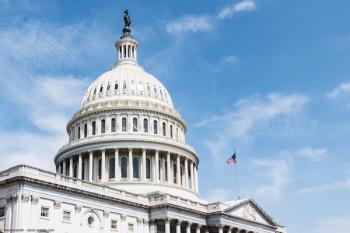
Payment reform promotes equity between practice settings
"CMS recently finalized laudable proposals for physician and ambulatory surgery center reimbursement in 2019 despite objections from powerful hospital groups and lawmakers," writes the AACU's Ross E. Weber.
Based on a partnership with Urology Times, articles from the American Association of Clinical Urologists (AACU) provide updates on legislative processes and issues affecting urologists. We welcome your comments and suggestions. Contact the AACU government affairs office at 847-517-1050 or
Lawmakers in Congress and regulators at the Centers for Medicare & Medicaid Services (CMS) have introduced new policies that will benefit independent physicians. The executive and legislative branches each have a snappy label for their efforts to alleviate administrative burdens related to payer relations. Information has been requested and hearings have been held, but practicing physicians have not yet benefited from the Patients Over Paperwork and Red Tape Relief projects.
Also from the AACU:
CMS recently finalized laudable proposals for physician and ambulatory surgery center reimbursement in 2019 despite objections from powerful hospital groups and lawmakers.
Site neutrality
As more medical procedures safely move to outpatient settings, the realization of significant savings has been thwarted by disparities in Medicare reimbursement (and patient cost-sharing) across various sites of service. An inequitable "site-of-service differential" exists between office settings, hospital outpatient departments (HOPDs), and ambulatory surgery centers (ASCs) in which payment to an HOPD consistently exceeds that for the same service provided in an office setting or ASC.
CMS Administrator Seema Verma addressed this "perverse incentive" in a July 25 discussion at the Commonwealth Club of California. Verma argued that the current formula motivates consolidation among hospitals and health systems, which then buy up physician offices,
Independent physicians and ASCs (not affiliated with hospital systems) were therefore pleased that the proposed 2019 Medicare Hospital Outpatient Prospective Payment System (OPPS) and Ambulatory Surgical Center Payment System took tentative steps to address this issue. In a CMS Fact Sheet, the agency declared that the changes "reduce payment differences between sites of service so that patients can benefit from high quality care at lower costs, and are able to receive care that is provided safely and is clinically appropriate."
While the final payment rule for 2019 didn't touch the structural difference between ASC and HOPD payments directly, CMS will limit reimbursement for clinic visits in outpatient hospital settings at the rate for clinic visits in physician offices. CMS estimates savings for beneficiaries at $14 per visit and savings for the Medicare program at $760 million for 2019.
Next:
The hospital industry struck back strong. The American Hospital Association said in a statement that CMS "inappropriately characterizes these clinic visits as 'check-ups' " and that "the reality is that hospitals serve some of the sickest, most medically complex patients in our clinics, evaluating them for everything from metastatic breast cancer to heart failure."
The hospital industry also persuaded 184 members of the U.S. House of Representatives to call on CMS to ditch the site-neutrality proposal. Rep. Peter Roskam (R-IL), chairman of the Subcommittee on Health for Ways and Means, was the lead signatory on a letter questioning the agency's rationale and authority to make the change. Lawmakers assert that the proposal may violate the Bipartisan Budget Act of 2015, which declares that existing facilities are not subject to such payment reductions.
Read:
Crucial laws such as this and the Affordable Care Act would seem to protect outpatient facilities tied to hospitals and enhance large players' bottom lines to such a degree that cost-effective, efficient, and patient-centered sites of care may soon dissolve. CMS undertook a crucial first step by finalizing plans to institute a site-neutral payment policy for outpatient clinic visits in 2019.
While many organizations remain silent, the AACU is committed to representing practicing urologists' interests on Capitol Hill and in regulatory rulemakings. There are myriad opportunities to make your voice heard, whether through maintaining your membership, contacting a legislator when called upon, or carrying a UROPAC donation to a candidate who is willing to consider urologists' positions.
Theodore Roosevelt, quoting a friend, declared that one's duty in life is to "Do what you can, with what you've got, where you are." The AACU exists to facilitate urologists' realization of that responsibility.
Newsletter
Stay current with the latest urology news and practice-changing insights — sign up now for the essential updates every urologist needs.






